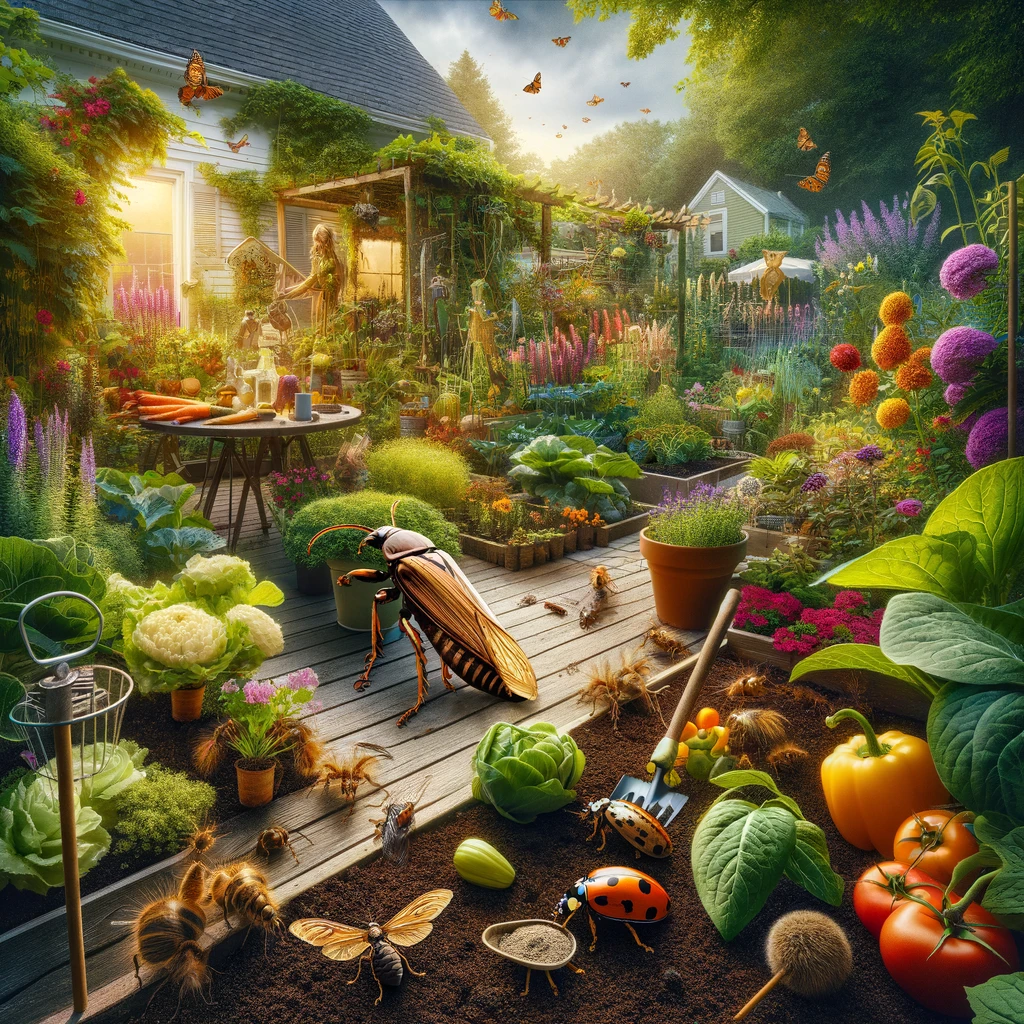In the heart of Glassboro, NJ 08028, where gardens and landscapes are as diverse as its residents, the challenge of maintaining a healthy outdoor space is a common thread that unites the community. With a growing interest in sustainable living and organic gardening, homeowners are increasingly seeking ways to protect their green spaces from pests without resorting to harsh chemicals. This comprehensive guide delves into the world of organic pest control methods, offering insights and solutions tailored to the unique ecosystem of Glassboro, NJ. From lush garden beds to sprawling lawns, we cover it all, ensuring your outdoor haven remains a sanctuary for you and nature alike.
Understanding Organic Pest Control
Organic pest control focuses on using natural substances and methods to manage pest populations, emphasizing the health of the soil, plants, and the broader ecosystem. Unlike synthetic pesticides, organic approaches aim to create a balanced outdoor environment that supports beneficial insects and natural predators, reducing the reliance on harmful chemicals.
The Foundation of a Pest-Free Garden
A healthy garden begins with the soil. Rich, nutrient-dense soil fosters strong plants that are more resistant to pests. Incorporating organic matter such as compost and well-aged manure improves soil fertility and structure, enhancing plant health. Mulching conserves moisture, suppresses weeds, and provides a habitat for beneficial insects, further bolstering your garden’s defenses.
Organic Solutions for Common Pests in Glassboro, NJ
1. Termite Control: Termite infestations can be devastating. Organic methods such as beneficial nematodes, which are microscopic worms that prey on termites, offer an effective solution. Borate sprays applied to wood surfaces also serve as a natural deterrent.
2. Grub Control: Milky spore powder is a natural product that targets grubs, the larvae of Japanese beetles, without harming beneficial insects. Applying it to your lawn introduces a bacterium that specifically infects and kills grubs.
3. Ant Control: Diatomaceous earth, a powder made from fossilized algae, is effective against ants and other crawling pests. When sprinkled around the garden, it acts as a natural abrasive, deterring ants without chemical use.
4. Spotted Lantern Fly Control: Neem oil, extracted from the neem tree, is a versatile organic pesticide that disrupts the life cycle of spotted lantern flies. Regular application can protect trees and plants from this invasive pest.
5. Control of Lawn Flies, House Flies, and Beetles: Planting aromatic herbs like lavender, mint, and basil can repel flies and beetles. These plants can be integrated into garden beds or grown in pots around patios and entrances.
6. Spider and Snake Deterrence: Essential oils such as peppermint and eucalyptus mixed with water can be sprayed around the garden to repel spiders. For snakes, keeping the garden free of debris and dense plantings discourages them from taking up residence.
7. Mice and Rodent Management: Encouraging natural predators like owls and hawks by installing nesting boxes can help control rodent populations. Sealing gaps in the foundation and eliminating food sources are also key preventative measures.
Beneficial Insects: The Unsung Heroes
Introducing or encouraging beneficial insects such as ladybugs, lacewings, and predatory beetles can naturally control pest populations. These insects prey on common garden pests, providing a dynamic, self-regulating system of pest management. Planting a diversity of flowers and herbs attracts these natural allies, turning your garden into a resilient ecosystem.
Companion Planting: A Strategic Approach
Companion planting involves strategically placing plants that mutually benefit each other to deter pests and enhance growth. For example, marigolds emit a scent that repels nematodes and other pests, while garlic and onions planted near roses can help fend off aphids.
Cultural Practices for Pest Prevention
Regular garden maintenance plays a crucial role in preventing pest infestations. Practices such as crop rotation, proper spacing, and timely pruning reduce the habitat for pests and the spread of diseases. Choosing native plants adapted to the climate of Glassboro, NJ, ensures they are more resilient to local pests.
Organic Pest Control Products
For targeted interventions, several organic products are effective against a broad spectrum of pests:
- Neem oil: Acts as a broad-spectrum insecticide, miticide, and fungicide.
- Insecticidal soap: Targets soft-bodied insects like aphids and spider mites.
- Bacillus thuringiensis (Bt): A naturally occurring bacterium used against caterpillars and larvae.
- Horticultural oils: Smother insect eggs and larvae without harming beneficial insects.
DIY Organic Pest Solutions
Homemade remedies can also play a role in your organic pest control arsenal. A simple spray made from water and a few drops of dish soap can deter soft-bodied insects. Garlic and chili sprays offer a spicy deterrent for a variety of pests, while a mixture of vinegar and water can manage ant trails and other insect paths.
The Role of Technology in Organic Pest Control
Advancements in technology offer new ways to monitor and manage pest populations organically. Soil moisture sensors, weather apps, and garden planning tools can help optimize watering and planting schedules, reducing the conditions that favor pest outbreaks. Drones and apps that identify pests and diseases are becoming invaluable tools for the eco-conscious gardener.
Building a Community of Organic Gardeners
Embracing organic pest control is not only about protecting your own garden but also about contributing to a healthier environment in Glassboro, NJ. Sharing experiences, successes, and challenges with fellow gardeners fosters a community of learning and support. Participating in local gardening groups and workshops can amplify the impact of organic practices, making Glassboro a model for sustainable living.
Conclusion
Adopting organic pest control methods in Glassboro, NJ, is a journey towards creating a more sustainable and harmonious outdoor space. By understanding the principles of organic gardening, employing natural solutions, and fostering a community of eco-conscious gardeners, homeowners can enjoy vibrant gardens that thrive in balance with nature. Say goodbye to pests the organic way, and welcome a healthy, flourishing garden that serves as a testament to the beauty and resilience of the natural world.

